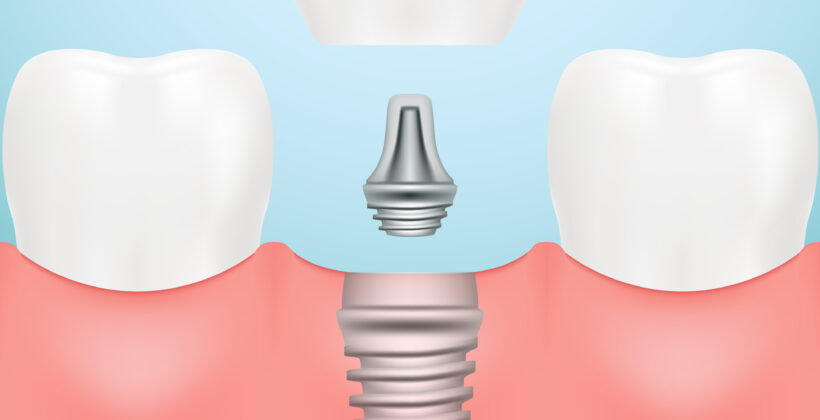Missing teeth can make or break your smile and oral health. A single missing tooth dramatically impacts the appearance of your smile and self-esteem. It also increases the risk of cavities, gum disease, shifting teeth, and further tooth loss. Yikes! The best and most effective solution to one or more missing teeth is a dental implant.
Dental implants are small, screw-like rods that are inserted into the jawbone through the gum tissue. No other dental restoration replaces the tooth root—that’s what makes it so special! Many, many benefits come with choosing this dental restoration, but there are also several downsides.
Continue reading to learn about the good, the bad, and the best things about dental implants.
The Good
Next to saving the natural tooth, dental implants are the best option because they look, function, and feel just like natural teeth.
The implant itself emulates a natural tooth’s root, then a crown is attached to the top of it, completing the restoration. The implant ensures stability, durability, and longevity. The crown ensures function and aesthetics.
Unlike other dental restorations, like bridges and dentures, a dental implant promotes jawbone regeneration. When a tooth falls out or is extracted, that part of the jawbone begins to deteriorate, affecting the person’s appearance and the stability of their other teeth. Jawbone resorption, or atrophy, can result in facial sagging, tooth movement, and further tooth loss. Placing a dental implant ignites a process called osseointegration where the jawbone and implant grow together and create a strong bond.
Additionally, the dental implant procedure is nearly 100 percent successful. Implant dentists are trained to identify suitable candidates for this procedure and carry it out without any complications. However, complications are still possible, especially when patients don’t abide by the recovery guidelines.
Finally, dental implants are versatile. They can be attached to a crown, bridge, or denture to replace one or several missing teeth. When attached to a dental bridge or denture, dentists place fewer implants than teeth. For example, implant dentists can use the All-on-4® method with involves strategically placing four dental implants to replace an entire arch of teeth.
The Bad
There are a few downsides to the dental implant process, but none should deter you from this incredible treatment. Here are a few reasons why dental implants may not be right for you:
- Length of treatment: The dental implant process is not a quick one. It requires several visits to the dentist’s office over several months. Then, healing can take another several months.
- Cost: Dental implants aren’t the most affordable dental restoration. Some insurance plans do cover part or all the cost, but others don’t. Talk to your dentist about payment plans or other financing options.
- Risk of failure. Complications and failures from dental implant surgeries are few and far between, but they do occur. Causes of implant failure include gum disease, insufficient jawbone, poor dental hygiene, and other medical conditions.
The Best
If you’re interested in dental implants, the best news we can give you is that most people are candidates for this incredible dental restoration.
Suitable candidates must have a healthy mouth and sufficient jawbone, be committed to the process, and not have any underlying health conditions that would lead to complications or failure.
Even still, oral health issues and insufficient jawbone density don’t disqualify you. Gum disease and cavities can be treated before the procedure. As for the jawbone, the dentist may suggest bone grafting to build up the jawbone, making you a candidate.
Dental Implants in Lombard, IL
Want to learn more? Dr. Julie Glud can determine if dental implants are the right option for your smile and work with you to create a personalized treatment plan. Call our office today at (630) 629-5700 to schedule your initial consultation.

